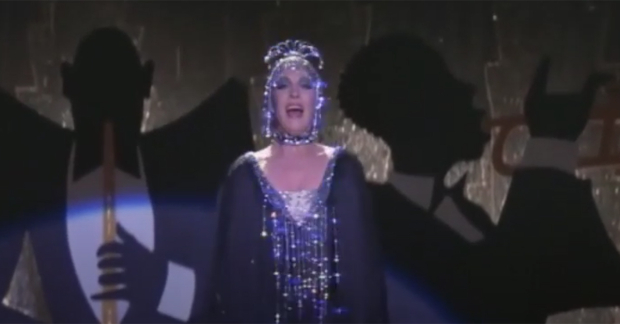Victor/Victoria: The Better Drag Comedy of 1982?
You may be surprised at how well it holds up these days, compared with the more widely celebrated ”Tootsie”.

Theater fans may be seeing a light at the end of this dark Covid tunnel, especially with the Public Theater's recent announcement that it will in fact have a Shakespeare in the Park season this summer. But the return of indoor live theater is most likely still a long ways off. So for those who need their fix of theatrical entertainment, streaming, live or otherwise, will still be the way to go for a while. In that spirit, allow me to suggest a blast from the past that really ought to be more widely celebrated than it seems to be today: the 1982 movie musical Victor/Victoria.
Not that Blake Edwards's gender-bending farce was trashed when it was released. It got respectful reviews and netted composer Henry Mancini and lyricist Leslie Bricusse an Academy Award for Best Music, though it inevitably placed second in the cultural conversation next to the year's other hit drag comedy, Tootsie. And Victor/Victoria was eventually turned into a hit Broadway musical, also starring Julie Andrews, that opened in 1995 and ran for 734 performances — though it is perhaps best remembered now for Andrews' refusal to accept her Tony Award nomination in order to stand with "egregiously overlooked" members of the production. But in this critic's estimation, not only is Victor/Victoria more progressive in its views of gender roles than Tootsie, it has stood the test of time better, despite Tootsie's continued reputation as a classic.
The concept behind Victor/Victoria did not originate with Edwards. The film was inspired by Reinhold Schünzel's 1933 German film Viktor und Viktoria, which chronicles the skyrocketing fame of aspiring singer Susanne (Renate Müller) after she, supported by fellow struggling artist Viktor (Hermann Thimig), becomes successful by posing as a female impersonator, and the complications that ensue when she finds herself falling in love with Robert (The Red Shoes' Anton Walbrook). Taking that premise, Edwards shifted the setting to 1930s Paris, added songs, and upped the queer content as well. Though the Viktor of Schünzel's film is straight (he falls in love with a dancer who is a part of the traveling show Susanne becomes a part of), Edwards's equivalent, Carole "Toddy" Todd (Robert Preston), is a proudly out homosexual, one who every so often expresses his own desire to be a woman instead of a man.
But Victor/Victoria's queerness isn't just relegated to that one character and co-star Julie Andrews's transvestism. Edwards's film also plays as a pointed deconstruction of gender norms. In contrast to Toddy's flamboyant homosexuality, there's the equally flamboyant heterosexuality of King Marchand (James Garner, who established himself as an icon of machismo as the title character of TV's The Rockford Files, among many other screen roles). Marchand is a nightclub owner and an unapologetic ladies' man who, after seeing Victoria's star-making debut performance, refuses to accept that a man could have performed it. Though his suspicions eventually turn out to be correct, his long-held conceptions of masculinity are initially rocked to the core when he realizes he's falling in love with Victoria and he considers what he's willing to give up professionally and personally in order to be with her.
All the characters are challenged to step outside their comfort zones in Victor/Victoria — even supporting characters like King Marchand's bodyguard "Squash" Bernstein (Alex Karras), who is inspired by his boss's example, however false, to finally come out of the closet himself. And even if Victoria ultimately decides to give up impersonating a man who impersonates a woman, Edwards treats that as less an affirmation of societal norms than simply an acknowledgment of the difficulties that come with fighting against them.
That's more than can be said for Tootsie, which ultimately reinforces strict binaries while allowing Dustin Hoffman in drag to mansplain feminism to his female co-stars (or so it plays today). Victor/Victoria is ultimately about people trying to find their best selves, even if the journey to that destination is messy and complicated. That's what makes its concluding number — with Toddy fulfilling a dream of his own and performing in drag — so liberating: He may end up being a disaster onstage, but he's having a ball nevertheless, and his audience is similarly, raucously enthusiastic and forgiving. There's an all-embracing joy amid the chaos.
Speaking of joy, the film as a whole remains as much an exuberant experience as it ever was. Andrews's introductory number as Victor, "Le Jazz Hot," is still a scorcher — but the musical numbers are by no means the whole show here. Befitting Edwards's wide-ranging view of life, Victor/Victoria is similarly expansive in its range of styles and emotions, with musical numbers coexisting with silent-movie-like slapstick sequences and intimate dramatic confrontations, and euphoria mixed in with heartbreak. There's a sense of freedom to this film, as if anything and everything could happen. Even now, there are very few films, musical or otherwise, like it.








